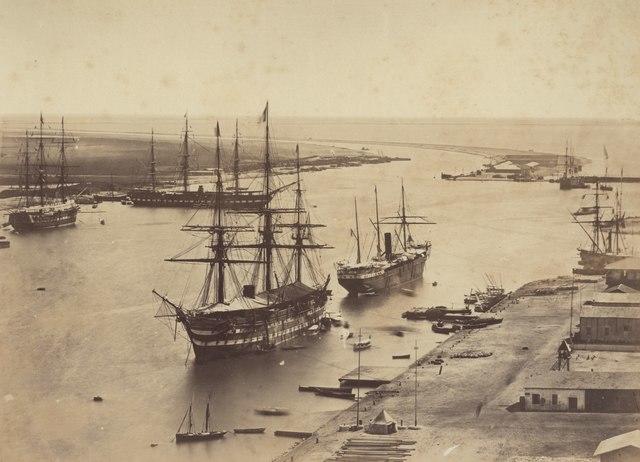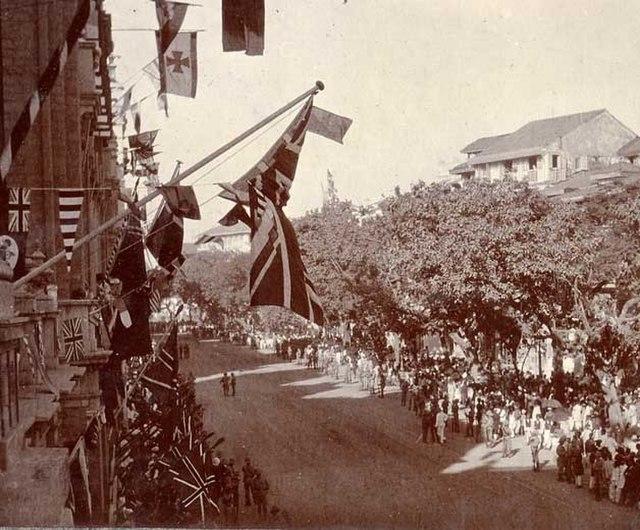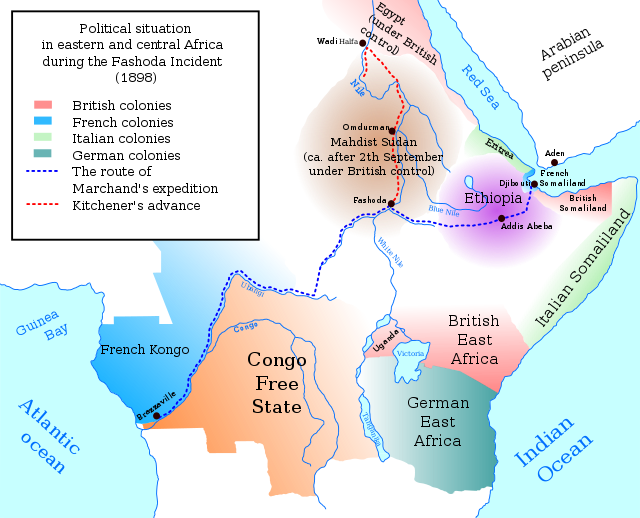Chapters
Although it does not exist today, at one point, the British Empire was one of the world's largest empires and consisted of countless colonies, dominions, and territories ruled by the United Kingdom. In this article, we’ll take an in-depth journey into the expansion of the British Empire, detailing everything from its push into African territory, the key aspects of its imperial and colonial policies and the administration of India and Egypt. We explore its views on Native policy and the impact of trade and commerce on the empire as a whole. Want to find out more? Join us on a fascinating deep dive into this topic below.

How Did the British Empire Consolidate and Expand in Africa?
The British Empire’s expansion into Africa came as a result of its desire for the continent's rich resources, better strategic positioning, and a belief that it was its moral obligation to “civilize” the people of the region. However, this desire would only increase after the Berlin Conference of 1884 to 1885, where major European powers met and partitioned Africa amongst themselves, showing very little concern for existing cultures and societies in the process.
As a result of this meeting, Britain would come into control over Egypt, which was prized because it was home to the Suez canal, which gave the British a shorter route to India, as well as the resource-rich regions of South Africa.

(Credit: Wikimedia Commons)
What Were the Key Aspects of Imperial and Colonial Policy?
Because the British Empire controlled so much territory during this period, they would adopt a mix of different governing strategies aimed at addressing the different needs and conditions of each area. For example, in many areas of Africa, the British implemented a strategy called indirect rule. How did this work? Essentially, they would make use of local traditional leaders by getting them to enforce colonial policies for them, effectively making them a sort of agent of the imperial government.
However, this also had a knock-on effect of worsening tensions among the existing society, and in some cases, even creating new ones. By empowering certain leaders or groups over others, the British often intensified ethnic and regional tensions, resulting in conflict breaking out.
Meanwhile, in places like India and certain areas of the West Indies, the British Empire opted for a more direct form of rule, taking full charge of administration and governance themselves. Over time, they would even introduce British legal and educational systems and make English the dominant language.
How Were India and Egypt Administered?
Following the 1857 rebellion, British governance in India would undergo a pretty drastic change. Formerly under the control of the East India Company, the rebellion would prompt the British government to reevaluate the way in which it handled colonial rule in India. From here, the decision was made for the British crown to take direct control of the country, leading to an era that would come to be known as the British Raj.
The British Raj set up a civil service system that was elite, exclusive, and almost entirely run by British officials, though it did include Indians eventually. This Indian Civil Service became a highly important part of the Raj and soon handled everything from laws and taxes to public services. While it was pretty effective at keeping British control tight, it also created a noticeable gap between the British rulers and the Indian people.
For example, British officials would often live in separate areas, far removed from the daily lives of the people they were governing, and would generally put their own interests ahead of the needs of the local population.
In Egypt, the British influence was, at first, mostly behind the scenes. However, this would soon change after the British military intervention in 1882. From here, Egypt would effectively come under the control of the Brits, despite never officially being declared a colony in the same way India was. The British introduced reforms in Egypt to modernise its economy, military, and public services, but mainly to tighten their grip on the Suez Canal and keep Egypt reliant on them.

What Was the 'Native Policy' and How Did It Affect International Relations?
Essentially, the “native policy” was an important part of how the British Empire treated the people in the countries they chose to colonize. All in all, it came from the British Empire's belief that they knew what was best for colonized countries, and that they should steer the local population towards a radically different way of life which was more in line with their own “civilized” way of living.
This included setting up schools and legal systems and changing local economies to fit into the wider world market. While these changes were meant to help integrate indigenous communities into the global economy, they actually often ended up making these communities dependent on the British and disrupted their traditional ways of living.
Globally, Britain's approach to managing its colonies would also often lead to confrontations with other countries who were hungry to expand their empires. For example, Britain and France would face off in a series of territorial disputes over Africa in an event called the Fashoda incident, almost resulting in a wide-scale war.

(Credit: Wikimedia Commons)
How Did Trade and Commerce Impact the Empire?
Without its successes in trade and commerce, the British Empire would likely never have grown as powerful as it did. Essentially, the empire created a vast network across the world, gaining the ability to move goods, money, and people whenever and wherever it saw fit.
Furthermore, by connecting with producers of goods in different countries, such as cotton growers in India, tea farmers in China, and sugar planters in the Caribbean, the British Empire was able to harness and gain a monopoly on many valuable resources, bolstering its economic strength as a result.
But the Empire didn’t stop there, eventually gaining control of many of the world's most important trade routes too. This move allowed them to decide how trade would be conducted and also massively influenced the economies of numerous regions all over the world.
Conclusion
In conclusion, The British Empire's expansion was driven by its quest for resources, strategic advantages, and a belief in civilizing other nations, particularly Africa and Asia. The Empire's forms of governance tended to vary a bit, including indirect rule in Africa and direct control in India and Egypt, each of which would go on to affect local societies differently.
Additionally, trade and commerce played a big role in their power and essentially created a sort of global network that dominated international markets. However, the Empire's 'Native Policy' often disrupted indigenous cultures and strained international relations with other European powers who were also greedy to expand.
Summarise with AI:








